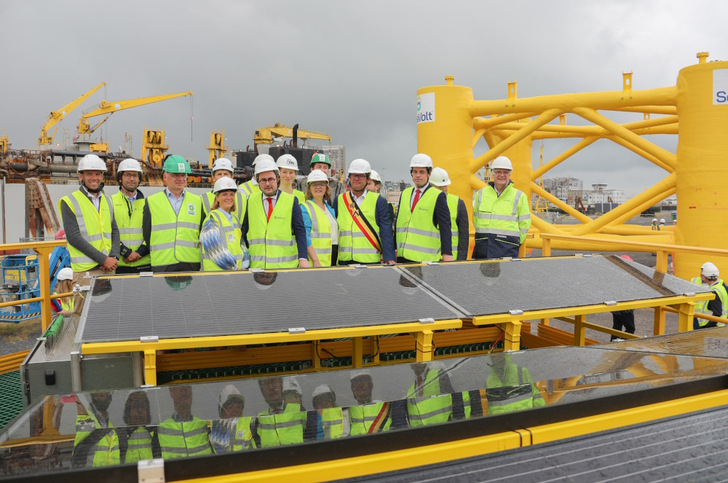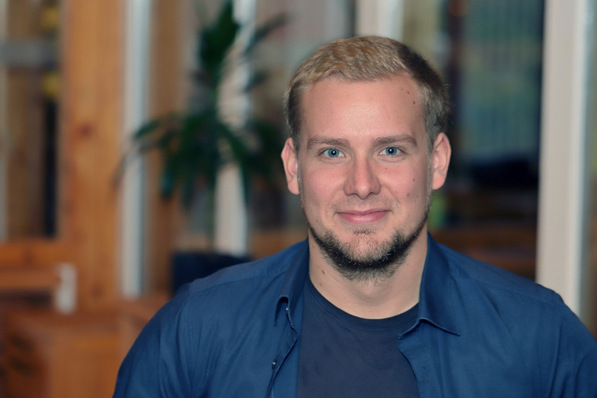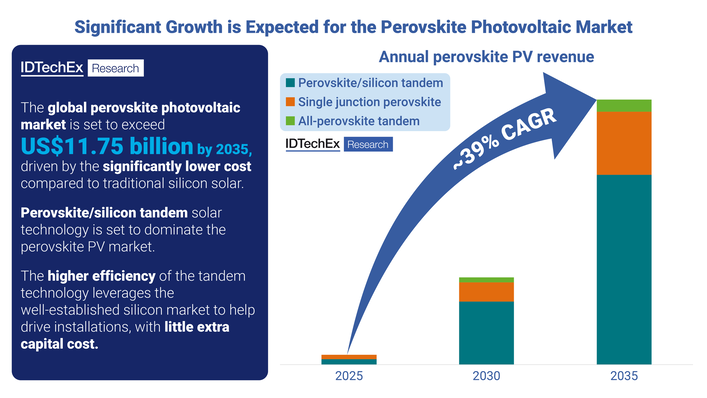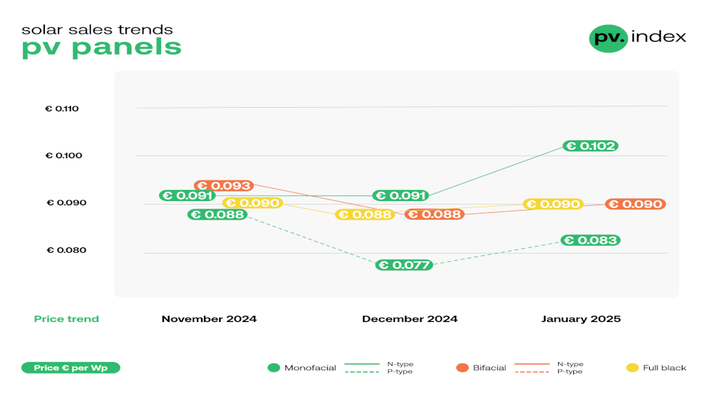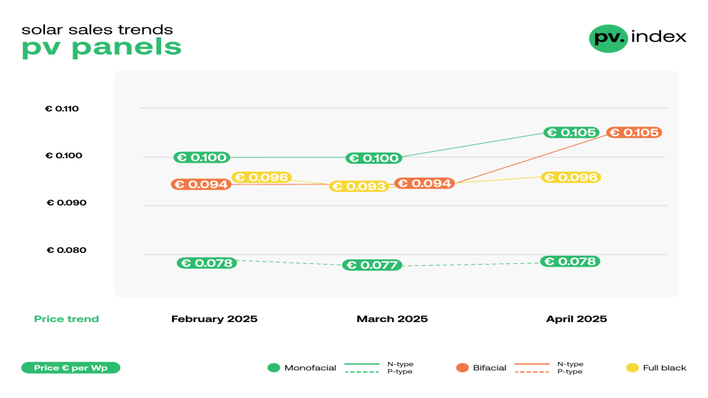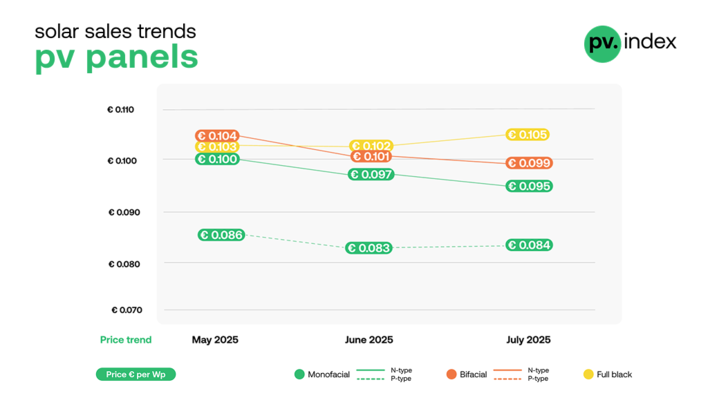The floating platform system is currently located in the port of Ostend on the Belgian North Sea coast, where the main contractor Equans is currently completing the assembly work. The test platform will be the first installation in the Belgian North Sea for large-scale offshore solar energy development. It will be brought offshore in August, anchored in the sea and commissioned to collect data for at least a year.
Pioneering the vast potential of offshore solar energy.
SeaVolt's potential is unlimited. Unlike existing floating solar arrays on lakes, SeaVolt has developed a concept specifically tailored to rough sea conditions. The modular design makes the technology an excellent complement to offshore wind farms.
Testing the solar modules
As part of the Blue Cluster-funded MPVAQUA research project, and with additional support from the Belgian federal government through BELSPO, SeaVolt's partners, together with Ghent University (UGENT), have been preparing to conduct a year-round test on the open sea in the "Blue Accelerator Offshore Test Zone."
This proof-of-concept installation will collect important data on the effects of waves, rain and salt spray on various solar modules with different PV module configurations. In addition, the effects of different tilt angles caused by waves and wind on energy output will be closely monitored. The test will be used to determine the required protection of the solar modules against seawater and bird droppings.
Testing the float
Among other materials suitable for this floating technology, SeaVolt has chosen a novel, lightweight carbon fiber material for the test rig. This material offers potential advantages for offshore use, but is not yet widely used in harsh sea conditions.
This will use embedded glass fibers and sensors attached to the structure to determine if the structural integrity (in terms of vibration/fatigue) of the material is consistent with numerical models and wave pool and wind tunnel test results. These measurements are essential for further financial evaluation, as the costs are mainly due to the float structure and the solar cells.
Environmental impact tests
In addition to the technical tests, the SeaVolt test facility also considers environmental aspects. Different materials are tested to see if they prevent negative impacts on the marine environment. The test results are then used to decide on the selection of materials for further development. The aim is not only to minimize the adhesion of excessive fouling to the float in order to maintain buoyancy. Finally, special tests are conducted to evaluate the combination of float systems with oyster and other shellfish aquaculture, which presents a special challenge.
Floating laboratory
This crucial test, which will examine all aspects of SeaVolt technology to develop a reliable, cost-effective and sustainable solution, will be the first installation in the Belgian North Sea aimed at developing offshore solar energy on a large scale.
Because this test involves only a few solar modules for a relatively large float design, it should not be considered a full-scale prototype. Rather, it is a laboratory designed to gain knowledge and advance technological development. Expectations for this new application of solar energy are high. Offshore solar offers an additional opportunity to generate green energy locally on site. In combination with offshore wind power, it is in line with the strategy of multiple site utilization and allows optimal use of existing electrical power infrastructure.
Promising European market
The significant potential of offshore solar energy is also recognized internationally. It has also attracted the attention of those responsible for European Green Deal plans. The Dutch government, for example, has announced plans to bring offshore solar power plants on the order of 3 GW online by 2030, and specific projects of up to 100 MW are under development. To achieve these goals, technological development is essential. With the offshore test, SeaVolt is taking the critical first step to advance large-scale floating solar power generation.
Next steps for SeaVolt
Environmental and economic studies are already underway, including an analysis of the future development of LCOE. To secure further development, SeaVolt is preparing a large-scale demonstration project at an offshore wind farm. This will further investigate the potential of integrating floating offshore solar in an offshore wind farm.
If it goes well, offshore solar energy will become a reality on a large scale. In this case, the SeaVolt consortium hopes to secure a significant share in this new development of the already strong Belgian offshore sector.
Did you miss that? Floating photovoltaics gaining traction
Vincent Van Quickenborne, Belgian Deputy Prime Minister and Minister of Justice and the North Sea, stated: "The North Sea is becoming the engine of our energy independence. These floating solar panels have the potential to supply wind farms with 1 GW of green electricity, equivalent to the output of a nuclear power plant. With this test project, which is like a solar laboratory at sea, we are taking on a unique pioneering role in a new industry. Once again, our companies are pioneering this technology, contributing to green economic growth and creating new jobs. All of this is being done in harmony with the marine environment. We are proving that economy and ecology can go hand in hand."
Thomas Dermine, State Secretary for Science Policy, Belgium, said: "Solar power in the North Sea has the potential to become as important as our wind farms in generating green electricity. To accelerate the development of offshore solar power, we are investing in the technology and know-how of Belgian players with our stimulus program. In this way, we are simultaneously addressing three major challenges: the fight against climate change, greater independence from energy imports, and the development of technological know-how in Belgium, which will create new jobs and exports." (hcn)


